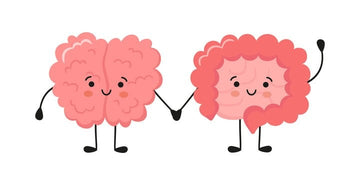Neurotransmitters are brain chemicals released from nerve cells that pass messages to other cells within the brain or body. Hormones are chemicals produced by glands that travel through the blood to reach distant organs.
Both hormones and neurotransmitters play a role in maintaining our health and well-being. These brain chemicals affect our mood, sleep patterns, appetite, and even our sex drives. Learn more about these important substances, their functions, and where they might be found in the human body.
Chemicals Hormones and the Brain
The three most important chemical hormones for brain function are serotonin, dopamine, and norepinephrine. Serotonin is a chemical messenger used throughout the brain, which helps us feel good, relax, learn, concentrate, and make decisions. Dopamine is another hormone that affects how we think, act, react, and feel. Norepinephrine is a hormone that helps you stay awake, focus on your work, and calm yourself down when you’re angry or anxious.
Hormone production is controlled largely by the pituitary gland. The hypothalamus and pineal gland also have an effect on hormone levels. But hormones don’t just sit around waiting to be released into the bloodstream; instead, they must first be made by the adrenal glands (the endocrine glands that produce adrenaline). In addition, there are small amounts of hormones that come directly from the nervous system.
Serotonin
Serotonin is produced by specialized cells called neurons. These neurons help regulate a number of different bodily processes, including digestion, temperature regulation, muscle tension, sexual behavior, sleep cycles, and anxiety. It helps control heart rate and blood pressure, as well as many aspects of mood, such as depression, aggression, and feelings of happiness.
There are two types of serotonin: 5-HT1A and 5-HT2C. Both can exist in either the free form or bound up with proteins. The 5-HT1A receptor works primarily as a calming agent, while the 5-HT2C receptor plays a major role in regulating pleasure.
If you want to stay active and keep your mood elevated then you should try this featured product available on our Amazon affiliate page. These capsules are formulated with ingredients that help support serotonin balance and production. Low serotonin levels have been linked to anxiety and depressive disorders.

Dopamine
Dopamine is one of the primary transmitters involved in reward pathways. This means that such brain chemicals have a significant impact on motivation, learning, memory, and motor skills. Dopamine levels fluctuate according to what's happening in the environment. For instance, if you're hungry, your dopamine level will rise. If you've eaten enough food, your dopamine level will drop.
In humans, dopamine is primarily produced by the substantia nigra and ventral tegmentum nuclei of the midbrain. Dopamine receptors are located mostly in parts of the frontal cortex and striatum, which are responsible for higher cognitive functions like decision making.
Our Affiliate page contains an amazing amazon product that will be delivered right to your doorstep The Dopamine Brain Food supports the brain's natural pathways of dopamine production and the combination of amino acids L-Phenylaline and L-Tyrosine with B Vitamins makes it safe to take every day. These are brain chemicals that make you happy.

Norepinephrine
Norepinephrine is another primary transmitter in the brain chemicals, along with acetylcholine and GABA. It's best known for its role in arousal and attention. When you get excited, your norepinephrine levels increase. Conversely, when you get anxious, your norepinephrine levels decrease.
Norepinephrine is synthesized in the locus coeruleus of the pons and medulla oblongata, but it is also present in smaller quantities in other areas of the brain. Norepinephrine receptors are located in the amygdala, prefrontal cortex, hippocampus, thalamus, hypothalamus, and cerebellum.
How Can You Increase Your Hormones?
You can increase your natural hormone levels through diet, supplements, lifestyle choices, and even certain physical exercises. Here are some ideas to consider:
Healthy Diet
It's no secret that a healthy diet can improve overall health, so why not take advantage of this fact with respect to increasing your hormone levels? Eating lots of fruits and vegetables, whole grains, lean meats, dairy products, and fish can all contribute to a healthy hormonal balance.
Supplementation
Some people choose to supplement their diets with vitamins and minerals to support specific hormone systems. There are also herbs and nutritional supplement companies that offer dietary supplements designed specifically to enhance hormone balance.
Lifestyle Choices
Many women find their menstrual cycle gets off track during pregnancy due to changes in stress hormones. To minimize this effect, try practicing self-care such as going to the gym more often, avoiding caffeine after noon, keeping an exercise routine at home, eating healthier foods, and being kinder to yourself.
Physical Exercises
Exercise is great for both men and women, especially if you have low testosterone levels. Physical activity increases testosterone production in women, while also improving muscle mass and bone density. Women who do strength training have lower rates of osteoporosis than those who don't.
So there you have it! A few tips on how to boost your hormones naturally. Remember these things—if you want optimal hormonal function, you must be proactive about maintaining good health. In addition, make sure to eat well, keep physically active, and implement healthy lifestyle habits into your daily life. Finally, avoid alcohol use, drugs, and smoking because they will only disrupt your endocrine system.
Key Takeaways
To sum up, the key hormones produced in brain chemicals cells include serotonin, dopamine, adrenaline, and noradrenaline. We discussed the three most important ones here--dopamine and norepinephrine. They play many roles in our brains and bodies, including regulating moods and emotions, sleeping patterns, weight gain or loss, learning skills, sex drive, memory retention, appetite, and much more.


